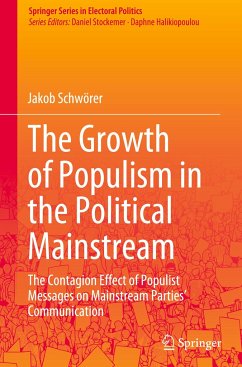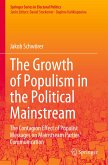This book examines the populist communication of mainstream parties in Germany, Austria, Italy, and Spain. For a long time, populist and radical right parties have been the main subject of investigation in academic research. Yet, how mainstream parties react to the rise of such actors is less known. Scholars assume a "populist Zeitgeist", a populist contagion claiming that the political mainstream actively engages in populist and nativist discourses.
The author tests this widespread assumption analyzing whether center-left and center-right mainstream parties adopt populist messages, as well as content related to the leftist and right-wing host ideologies of populist actors. Therefore, this book is a must-read for scholars, students, and researchers of political science and electoral studies, as well as policy-makers and practitioners interested in a better understanding of populism and populist communication.
The author tests this widespread assumption analyzing whether center-left and center-right mainstream parties adopt populist messages, as well as content related to the leftist and right-wing host ideologies of populist actors. Therefore, this book is a must-read for scholars, students, and researchers of political science and electoral studies, as well as policy-makers and practitioners interested in a better understanding of populism and populist communication.








